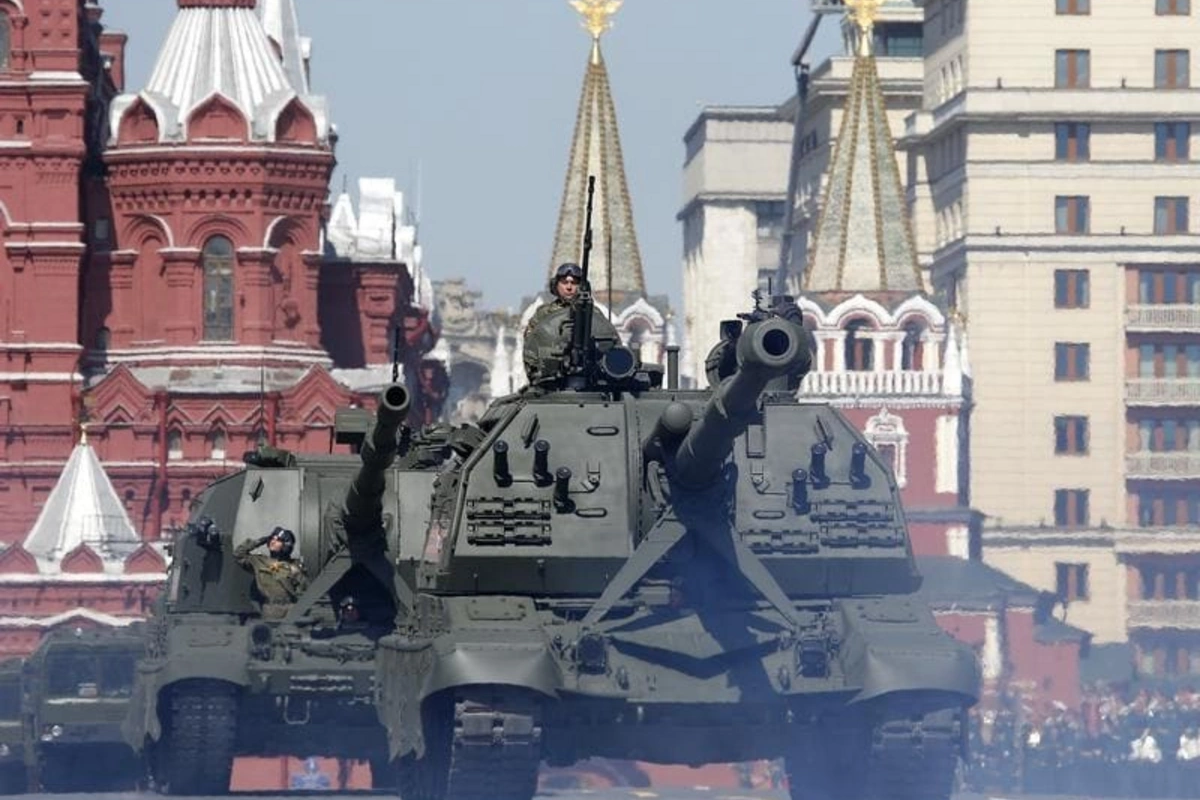
Reuters
Russia’s Presidential Administration held a session in November for regional officials, during which the meaning of ‘victory’ in Russia’s war on Ukraine was discussed, The Caspian Post reports citing Kyiv Post.
This appears to be the latest development in the authorities’ efforts to prepare for the end of the war (even if not imminent) - and to minimize the difficulties associated with it. For instance, we’ve spoken before about the ‘Time of Heroes’ program and the Russian state’s attempts to reintegrate war participants back into civilian life with minimum disruption - another topic at the November session.
What does the timing and content of this session tell us - if anything - about the Kremlin’s thoughts on when and how the war on Ukraine might end?
In the West, there is a widespread belief that the purpose of Russia’s military actions in Ukraine is to ensure a security belt between Russia and NATO. Accordingly, proposals are emerging in the West for stopping the war, with Russia retaining captured Ukrainian territories while the rest of Ukraine is invited into the EU and NATO - or the country is at least given security guarantees and more Western weapons.
None of these options suit Putin. His preferred scenario involves implementing Russia’s demands made during talks in Istanbul in 2022. These include the disarmament of all of Ukraine and its acknowledged entry into Russia’s sphere of control.
Putin wants to demonstrate the existence of a vital zone of interest for Russia, with a right to behave as it sees fit within it.
At the same time, Putin is not interested in ending the war completely. This would turn him from a supreme commander into a simple head of state - and it would raise the question of whether the results obtained through conflict were worth the colossal costs of the war. Instead, Putin is interested in reducing the intensity of the confrontation and turning a full-scale war into a smoldering conflict.
The Kremlin wants to humiliate the West and expose its weakness - to show that NATO isn’t capable of providing security guarantees against Russia, and that all guarantees of this kind in the post-Soviet space should be agreed with Moscow.
It’s clear that the confrontation between Putin’s Russia and the West does not end here, and that there is a third war ahead, which the West cannot afford to lose, but for which it is not prepared.
Regarding the November meeting with deputy governors, it’s too early to draw conclusions. It was a nod to public opinion, which (in Russia and the West) wants the war to end.
But, as already noted, Putin himself does not want to end the war, nor is he ready to make concessions. Rather, he is demonstrating a readiness to make peace if the West agrees to all his demands. Putin will offer ‘peace,’ and the West will refuse.
The Kremlin also counts on the fact that for the incoming US president, the war in Ukraine is someone else’s - Biden’s, Europe’s, anyone’s. Trump would clearly like to end his country’s conflict with Russia in order to have a better-placed confrontation with China. Therefore, it may be easier for him to end the war on Ukraine by accepting Putin’s humiliating conditions.
“Victory” for the Kremlin and the majority of Russians involves the reversal of perceived historical injustices, not just Western acquiescence. If, in the eyes of the country’s leadership and much of its population, Russia has been humiliated by the West in the past, then it is now Russia’s turn to do the humiliating.
This does not necessarily amount to the complete seizure of Ukraine, but it does involve the return of the country to the Kremlin’s control as a neutral, non-nuclear state, with disarmament and a reduction of the military to a minimum level.
For any ceasefire, the West will be asked to pay by lifting sanctions, withdrawing cases against Russia in international courts, and removing some parts of NATO’s military infrastructure.
What can deputy governors meaningfully do to shape regional attitudes towards the meaning of ‘victory’ in Ukraine?
Not much. The November meeting is best seen as part of preparations by the Kremlin to increase its political maneuverability. By probing and shaping public opinion, even if only minimally, the Kremlin can maximize the number of options it has when it declares ‘victory,’ even if that is not likely to happen any time soon.
How much variation is there in what ‘victory’ looks like for different sections of Russian society - and how likely is it that certain groups (e.g., war-maximalist nationalists) will cause trouble when the shape of ‘victory’ doesn’t please them?
Neither Russian society as a whole, nor individual groups, are able to play a serious political role
The so-called military turbo-patriot bloggers are more visible, but are not particularly influential - and, when necessary, are controlled by both the Kremlin and the Ministry of Defence
We can speak of both a minimalist and a maximalist understanding of ‘victory.’ In the first case, this is the international recognition of Russia’s territorial gains: Russia retains, in addition to Crimea, which it annexed in 2014, parts of four Ukrainian regions occupied in 2022; this amounts to symbolic revenge for the ending of the Cold War and the collapse of the USSR.
In the second, maximalist case, even fulfilment of all demands made by Putin in late 2021 - including expansive security concessions from the US and NATO - will not be enough.
The problem, however, is that today’s interpretation of ‘victory’ does not include the costs of war, which are far from being fully understood and felt.
This is why Putin is not interested in a complete end to the war, regardless of the conditions.
Share on social media